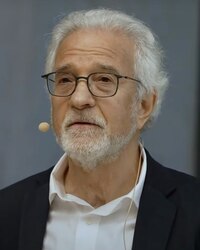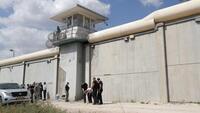Arnon Grunberg's Blog, page 9
July 22, 2025
Problem
 Fertility
FertilityOn cutbacks and dying – Louise Perry in NYT:
‘In June, lawmakers in my native country, Britain, approved plansto legalize assisted suicide. If the bill becomes law, England and Wales will join more than a dozen countries and 11 U.S. states in permitting medically assisted dying.
Every one of these jurisdictions has a total fertility rate below the replacement threshold. I do not think this is a coincidence.
About 30 years ago, P.D. James’s prescient novel “The Children of Men” imagined that a birthrate crisis would induce governments to facilitate the suicides of the elderly in a ritual known as “the Quietus.” Looking at the rush among some low fertility countries to legalize assisted suicide, I fear that Ms. James’s vision is already being realized.
Our fertility predicament is not as extreme as that imagined in “The Children of Men,” but it is nonetheless very real. The global total fertility rate has more than halved since 1950, with those of most countries already below replacement level. The population pyramid is increasingly inverted, not just in the wealthiest Western nations but also in most places outside Africa.
This poses an existential threat to welfare systems, which rely on young workers to fund entitlements and health care for older adults. Those who hope that liberal immigration policies will solve this problem forget that immigrants themselves get old, and their birthrates tend to converge with those of the greater population over time.’
(…)
‘Those who support the legalization of assisted suicide have a bad habit of using a motte-and-bailey style of argumentation. From their easily defended motte, they insist that a person with a terminal illness who fears a painful and undignified death should be able to seek medical assistance and the company of his loved ones if he decides to make an early exit. That argument seems logical enough to most of us, and compassionate.
But then there’s the bailey: what assisted suicide actually looks like in many of the countries that have adopted it.
In 2002, the Netherlands became the first country to deliver death via its universal health care system. Last year 9,958 people in the Netherlands died with the help of that system, accounting for more than 5 percent of the country’s total deaths. One of these was the 29-year-old Zoraya ter Beek, who chose to die not because of any physical impairment but because she suffered from a combination of anxiety, depression, autism and an unspecified personality disorder.’
When Canada first introduced its Medical Assistance in Dying program in 2016, MAID was available only to adults suffering from an incurable and intolerable illness whose natural deaths were “reasonably foreseeable.”But in 2021, that last requirement was removed. Now young people with potentially long lives ahead of them are choosing state-facilitated death. So too are the poor and the desperate, who might want to go on living if only they had enough state support. Roger Foley, a 49-year-old man who was born with a severe neurodegenerative disease, testified to the Canadian Parliament in 2020 that he felt hospital staff members had tried to coerce him into assisted suicide “by threatening to charge me $1,800 per day or force discharge me without the care I needed to live.” The 37-year-old Jennyfer Hatch, who in 2022 was featured in a glossy commercial endorsing the MAID program, told a reporter in the months before her assisted suicide that she wanted to keep on living but was struggling to access the health care she needed.’
(…)
‘If assisted suicide is to be legalized at all — and my view is that it should not be — then the best system to emulate is that adopted by Switzerland, in which patients are legally helped to die through not-for-profit organizations independent of the state. Without this separation, organs of the state that are tasked with solving an impossible financial problem — how to pay for more old people with less money — will be inexorably tugged toward what looks to a mindless bureaucracy like a “solution.”’
Read the article here.
There is a case to be made that assisted suicide should be legal, under certain conditions.
But the danger is real that assisted suicide will end up as a system in which only the affluent can afford to live longer. To suffer longer maybe, but there are people who would rather suffer than die.
The question when suffering has become so severe that it makes life unlivable is real, but it is difficult to answer. We know that the support-systems might play an important role.
We also know that loneliness (it all depends on definitions of course) is as unhealthy as smoking.
Perhaps, that’s why so many people smoke, they prefer the cigarette to loneliness.
The discussion about lower birthrates and assisted suicide has just begun.
July 21, 2025
Reparations
 District
DistrictOn genocide – Juliane von Mittelstaedt in Der Spiegel:
‘Itamar Mann’s grandfather owned a legal practice in Berlin until the Nazis banned him from working. He emigrated to Palestine in 1936, thus escaping the Holocaust – before then spending the rest of his life seeking reparations from Germany for the sufferings of his clients. Itamar Mann’s father worked as a defense attorney in Israel. Itamar Mann himself became an international law expert. The 45-year-old is a professor and teaches at the University of Haifa. He joined a video interview from a garden in the Lichterfelde district of Berlin. He has been in the German capital for the last year on a research grant from the Humboldt Foundation.
It is a sad irony, says Itamar Mann, that here, on German soil – and, as a recent development, as a German citizen – he would utter the following sentence: "I am becoming increasingly convinced that Israel is committing genocide in Gaza."’
(…)
‘Will what’s taking place in Gaza ultimately be seen as the latest catastrophe in a series with the Holocaust and the genocides in Rwanda and Srebrenica? In Rwanda, at least 800,000 people were slaughtered in 1994, most of them belonging to the Tutsi minority. In Srebrenica, Bosnian Serb troops took control of the UN Safe Area in Srebrenica and murdered more than 8,000 people, the majority of them Muslim men and boys.’
(…)
‘Back to Itamar Mann in Berlin. Is it not absurd, Mr. Mann, that Israel is now suspected of committing genocide?Of course, he says calmly. "Those who have participated in genocide become illegitimate actors and are thus forbidden to speak in the public sphere. And indeed, for some, this is precisely what the accusation is aimed to serve – delegitimizing Israeli and possibly Jewish voices as such." It cannot be ignored, he says, that the accusation of genocide against Israel is frequently cloaked in anti-Semitic rhetoric. "But we cannot allow this to prevent us from making sound moral and legal judgments and calling it genocide when that is what we are seeing take place.”’
(…)
‘This intent is clearest when an extermination plan exists, such as in the Nazi’s Wannsee Protocol from 1942 on the "final solution of the Jewish question.” If there is no blueprint and no clear orders, genocidal intent must be proven by evidence. The judges of the ICJ have set a high hurdle for that evidence: Genocidal intent must be the "only reasonable inference” in light of the evidence. That was the bar used in the judgment against Serbia and Montenegro in 2007 – where the judges ruled that it had not been met. As such, the court did not rule that Serbia’s war on the whole was genocide, but it did find that the massacre in Srebrenica met that standard.’
(…)
‘Contributing to those misunderstandings is the recognition of various genocides by governments and parliaments. Germany, for example, has officially determined that the crimes committed against the Armenians during World War I, the killings of the Herero and Nama in the colony of German South West Africa (now Namibia) in the early 20th century and the mass murders of Yazidis in Iraq in the 2010s were all instances of genocide. Other countries have declared the crimes committed by China against the Uighurs and the slaughter perpetrated by the Khmer Rouge in Cambodia to constitute genocide. U.S. President Donald Trump has recently begun speaking of a genocide against white citizens of South Africa.’
(…)
‘"I was one of the first in Germany to say that Israel was committing war crimes,” Talmon says. "And now, I say: But it falls legally short of genocide. Many people don’t understand that. Am I on the side of the Palestinians or the Israelis?” In the political debate, he says critically, accusations of genocide are used to demonize the other side. For him, the complaint filed at the ICJ by South Africa is an attempt to enforce morality by means of law.
Talmon may have another reason for his position: He is one of Myanmar’s counsel in the ICJ proceedings. As such, he has an interest in a narrow interpretation of the Genocide Convention.
Of himself, he says he is a "black letter lawyer,” one who hews strictly to precedent and shies away from adopting legal interpretations based on what the law might be in the future. As such, he strongly believes: "It will not be possible to prove genocide in Gaza in the legal sense.”’
(…)
‘"Few morel consequences follow from a judgment that a state did not commit genocide during the war,” says Janina Dill. The war crimes took place, nonetheless. It is therefore perhaps not so important what the court might one day decide. Rather, the important part is that this debate takes place now.’
Read the article here.
It’s important that the debate takes place now. For the victim this is a not very comforting, but better than nothing I believe.
More important, what will be the consequences of this debate?Will Israel be a pariah for decades to come? What will be the consequences for the Jewish people in the diaspora? What will remain of Gaza? Will there be a Palestinian state?
What will remain of the international order if all that can be done against genocide is to report it? Unlike some Serbian and Bosnian and Kosovan war criminals it’s doubtful that any Israeli will ever face justice in The Hague.
History is still written by the victors. We will see who the victors will be.
July 19, 2025
Lessons
 Systems
SystemsOn rabbits – Amos Harel in Haaretz:
‘More troubling, people are saying that in another round with Iran, the result on the home front will be similar. Officers in the air force say that this is baseless thinking.
"We have to be wary of victory celebrations like the war albums of 1967," one officer says, referring to the tomes written after the Six-Day War. If another war with the Iranians breaks out, it's best to expect higher Israeli casualties. Iran is a scientific and technological power.
"It doesn't matter what they say in public, they realize that systems in which many billions of dollars were invested didn't deliver the goods," another officer says.
"It's totally clear that the Iranians are learning lessons, and they'll now seek other solutions in a bid to bypass our systems. Iran will develop satellite capabilities, work on improving the accuracy of its missiles and upgrade its ability to penetrate our systems.
"We have to assume that they'll reach our capabilities in a few years. Next time we'll have to pull new rabbits out of our hat."’
Read the article here.
The old war is not over yet, the preparations for the new have already begun.
New rabbits will be pulled out of hats, till here are no more rabbits, no more hats.
July 18, 2025
Positions
 Workers
WorkersOn believers – Th Economist:
‘You are a rational person. When someone says the moon landings were faked, or that 9/11 was an inside job, you do not conclude that they must be in the know. Why, then, should you pay any attention to Jeffrey Epstein conspiracy theories, which have been swirling around since the last year of George W. Bush’s presidency, when Epstein pleaded guilty in Florida to procuring a child for prostitution. When everyone in America’s infotainment ecosystem is competing for attention, Epstein content generates more Epstein content until something else comes along to displace it. Ignoring this stuff seems wise. Yet there are reasons why a rational sceptic should spend a few minutes thinking conspiratorially.
Dumb as they are, some conspiracy theories are consequential. There have been at least 1,200 cases of measles in America this year because lots of people believe that the side-effects of the measles vaccine have been covered up. One of those people is the president of the United States (who has taken every position on vaccines).’
(…)
‘There was a real man called Jeffrey Epstein who became rich by managing money for private clients. He was acquainted with many powerful people, including the current president of the United States (who, the Wall Street Journal scooped, sent him a 50th-birthday card that read: “A pal is a wonderful thing. Happy Birthday—and may every day be another wonderful secret.”) Epstein was initially treated leniently by prosecutors. He hanged himself in prison in 2019.’
(…)
‘The result is that more than 80% of Democrats think the government is covering up evidence about Epstein, which is perhaps to be expected given that lots of them also believed the president was a Russian mole. More surprising is that, according to polling by YouGov for The Economist, half of Republicans agree.’
(…)
‘Since the spike in unwelcome attention, Mr Trump has tried to get people talking about anything else. Normally he embraces support wherever it comes from. The white supremacists who marched in Charlottesville in 2017 were “very fine people”. Nick Fuentes, who denies the Holocaust happened, was invited to dinner at Mar-a-Lago. This is the first time Mr Trump has disowned support, calling Republican voters who keep mentioning Epstein “weaklings”. When that didn’t work, he promised more disclosures, which sounds like a very short-term fix. “Now you see why I didn’t vote in 2024,” Mr Fuentes posted a couple of days ago. Having acquired a taste for criticising the president and finding they can get away with it, some of his supporters may find it is habit-forming.’
(…)
‘The Trump movement includes free-traders and protectionists, pro-Ukraine people and pro-Russia people, those who want mass deportations and those who would spare hotel and farm workers. Mr Trump has kept them mostly happy by taking all these positions simultaneously. No other politician in America can do that. The Epstein story hints at what would happen were this ability to desert him. So it is also a preview of what could happen when someone without Mr Trump’s talents tries to lead his movement.’
Read the article here.
‘Epstein content generates more Epstein content.’
He might be as well another dead Messiah. After all, the Antichrist is a Messiah as well, sort of.
Trump himself is all about offering redemption to his followers.
Most probably, Epstein will last longer than his movement.
July 17, 2025
Deal
 Session
SessionOn softening up – Amos Harel in Haaretz:
‘The official most committed to a deal is Trump's envoy, Steve Witkoff. If Witkoff comes to Israel or Qatar in the near future, that can be taken as a positive sign that things are nearing finalization.’
(…)
‘Trump, for the time being, is displaying patience and even sympathy for Netanyahu's difficulties. That's perhaps how the extraordinary, and infuriating, visit this week by U.S. ambassador to Israel Mike Huckabee to the Tel Aviv District Court should be understood. The Americans are softening Netanyahu up with public gestures, in the hope of achieving their goal. The ambassador did not attend a session of Netanyahu's criminal trial only at his own initiative.’
(…)
‘Here's what a person I will call A. has to say. He's an officer in the reserves who recently concluded service in one of the command posts whose troops are currently seeing action in the Strip.
A.: "The parents of the soldiers need to understand what's going on there. The primary, and almost only, mission of the forces is to secure the demolition activity of the bulldozers and the drills. It has a military name that attests to the goal: 'ceiling on the floor.' But that is not a military task by its character.
"We have hardly any [intelligence] locating of sites that are directly related to the enemy's activity. It's simply massive demolition of houses, on the basis of a plan and operational indices. The contractors, many of whom are civilians, are paid according to the number of buildings they demolish.’
Read the article here.
Ceiling on the floor, another euphemism for war crimes.
Private contractors paid for each war crime.
And Trump trying to soften up the war criminal, the Nobel Peace Prize must be always in Trump’s mind.
Pentagon
 Danger
DangerOn intelligence agencies – Richard Norton-Taylor in TLS:
‘The CIA may have saved thousands of lives in the past, but the most immediate danger facing the US, warns Tim Weiner in The Mission, is “the threat to American democracy itself”. And that is something, he says, the CIA would be “powerless to prevent”. A Pulitzer-winning reporter and author of a number of acclaimed books on intelligence and national security, Weiner makes his view clear from the start. “Among the CIA’s greatest challenges in the days to come”, he writes in his prologue, “will be the man in the White House, an authoritarian leader who presents the clearest danger to the national security of the United States since this century began.”’
(…)
‘The dystopian picture Weiner paints of America’s future was encouraged by the US Supreme Court’s majority ruling last year that US presidents are immune from prosecution for their “official acts”. The author notes that one of the dissenting justices warned that a president “who admits to having ordered the assassinations of his political rivals or critics … has a fair shot at getting immunity”. The president “is now a king above the law”, writes Weiner. The Mission’s subtitle may prejudge the future – we are only a quarter of the way into the twenty-first century – and, despite Trump’s decisions and rhetoric in the early months of his second administration, how far the US Congress, or the Pentagon, or White House advisers, will allow a president to go remains to be seen.’
(…)
‘There was once a concern among members of Congress, and in the wider American public, that espionage was a dirty game, at odds with the US constitution and the principles of an open society. He quotes an intelligence officer commenting at the end of the Second World War that “secrets themselves” were “held by many to be basically ‘un-American’”. Headlines, fed by leaks about the plans to set up the CIA, warned of an American “Gestapo”. Rogg quotes President Truman, who warned in 1963: “We have grown up as a nation, respected for our free institutions and for our ability to maintain a free and open society. There is something about the way the CIA has been functioning that is casting a shadow over our historic position and I feel that we need to correct it”.’
(…)
‘As Rogg neatly puts it, Congress and US public opinion swung “from liberty” in the 1970s to “security” by the end of that decade in the wake of the Iranian Revolution and the Soviet invasion of Afghanistan. The pendulum stayed there after the 9/11 attacks, only to swing back a little after evidence of abuses emerged during the War on Terror. But it has remained largely in the “security” camp despite concerns about threats to civil liberties, disclosed notably by Edward Snowden, who revealed the extent to which US intelligence agencies, in co-operation with large tech companies, were intercepting the personal communications of Americans. While the tension between “liberty” and “security” endures, the scales are tipping away from the former, Rogg warns.
Despite complaints from Congress and the White House about being kept in the dark about what the CIA, FBI and other US intelligence agencies were up to, successive presidents accepted ultimate constitutional responsibility for covert operations. Constitutional checks and balances fell by the wayside.’
(…)
‘Democratic governments need effective and trusted intelligence agencies to protect their citizens from hostile forces, perhaps especially so at our current time of disinformation and hybrid warfare. The CIA was set up in the first place to engage not in assassinations or coups, but in old-fashioned espionage, the task of gathering “humint” (human intelligence) to find out the real intentions of individual enemies amid all the noise from communications cables, as well as the potential threats posed by AI and the wishful thinking of their political masters. This is a crucial time for the West’s security and intelligence agencies, and the American ones above all. The coming years should be decisive ones in their long history, and will need a new chapter in Jeffrey P. Rogg’s book, and a new book by Tim Weiner.’
Read the article here.
‘Checks and balances fell by the wayside.’Yes, and when exactly will the checks and balances come back, if ever again?
And if security agencies cannot protect the state and its citizens against domestic tyrants, what are they good for?
Besides throwing checks and balances in the ravine.
July 16, 2025
Everywhere
 Pattern
PatternOn genocide – Omer Bartov in NYT:
‘At that point it appeared no longer possible to deny that the pattern of I.D.F. operations was consistent with the statements denoting genocidal intent made by Israeli leaders in the days after the Hamas attack. Prime Minister Benjamin Netanyahu had promised that the enemy would pay a “huge price” for the attack and that the I.D.F. would turn parts of Gaza, where Hamas was operating, “into rubble,” and he called on “the residents of Gaza” to “leave now because we will operate forcefully everywhere.”’
(…)
‘My inescapable conclusion has become that Israel is committing genocide against the Palestinian people. Having grown up in a Zionist home, lived the first half of my life in Israel, served in the I.D.F. as a soldier and officer and spent most of my career researching and writing on war crimes and the Holocaust, this was a painful conclusion to reach, and one that I resisted as long as I could. But I have been teaching classes on genocide for a quarter of a century. I can recognize one when I see one.
This is not just my conclusion. A growing number of experts in genocide studies and international law have concluded that Israel’s actions in Gaza can only be defined as genocide. So has Francesca Albanese, the U.N. special rapporteur for the West Bank and Gaza, and Amnesty International. South Africa has brought a genocide case against Israel at the International Court of Justice.’
(…)
‘Yet as Mr. Lemkin recognized, and as the United Nations later agreed, it is crucial to be able to distinguish the attempt to destroy a particular group of people from other crimes under international law, such as war crimes and crimes against humanity. This is because, while other crimes entail indiscriminate or deliberate killing of civilians as individuals, genocide denotes the killing of people as members of a group, geared at irreparably destroying the group itself so that it would never be able to reconstitute itself as a political, social or cultural entity. And, as the international community signaled by adopting the convention, it is incumbent upon all signatory states to prevent such an attempt, to do all they can to stop it while it is occurring and to subsequently punish those who were engaged in this crime of crimes — even if it occurred within the borders of a sovereign state.’
(…)
‘According to a recent investigation by Haaretz, an estimated174,000 buildings have been destroyed or damaged, accounting for up to 70 percent of all structures in the Strip. So far, more than 58,000 people have been killed, according to Gazan health authorities, including more than 17,000 children, who make up nearly a third of the total fatality count. More than 870 of those children were less than a year old.
More than 2,000 families have been wiped out, the health authorities said. In addition, 5,600 families now count only one survivor. At least 10,000 people are believed to still be buried under the ruins of their homes. More than 138,000 have been wounded and maimed.
Gaza now has the grim distinction of having the highest number of amputee children per capita in the world. An entire generation of children subjected to ongoing military attacks, loss of parents and long-term malnutrition will suffer severe physical and mental repercussions for the rest of their lives. Untold additional thousands of chronically ill persons have had little access to hospital care.’
(…)
‘To this day, only a few scholars of the Holocaust, and no institution dedicated to researching and commemorating it, has issued a warning that Israel could be accused of carrying out war crimes, crimes against humanity, ethnic cleansing or genocide. This silence has made a mockery of the slogan “Never again,” transforming its meaning from an assertion of resistance to inhumanity wherever it is perpetrated to an excuse, an apology, indeed, even a carte blanche for destroying others by invoking one’s own past victimhood.
This is another of the many incalculable costs of the current catastrophe. As Israel is literally trying to wipe out Palestinian existence in Gaza and is exercising increasing violence against Palestinians in the West Bank, the moral and historical credit which the Jewish State has drawn on until now is running out.
Israel, created in the wake of the Holocaust as the answer to the Nazi genocide of the Jews, has always insisted that any threat to its security must be seen as potentially leading to another Auschwitz. This provides Israel with license to portray those it perceives as its enemies as Nazis — a term used repeatedly by Israeli media figures to depict Hamas and, by extension, all Gazans, based on the popular assertion that none of them are “uninvolved,” not even the infants, who would grow up to be militants.
This is not a new phenomenon. As early as Israel’s invasion of Lebanon in 1982, Prime Minister Menachem Begin compared Yasir Arafat, then hunkered down in Beirut, to Adolf Hitler in his Berlin bunker. This time, the analogy is being used in connection with a policy aimed at uprooting and removing the entire population of Gaza.’
(…)
‘What consequences will Israel’s moral reversal have for the culture of Holocaust commemoration, and the politics of memory, education and scholarship, when so many of its intellectual and administrative leaders have up to now refused to face up to their responsibility to denounce inhumanity and genocide wherever they occur?Those engaged in the worldwide culture of commemoration and remembrance built around the Holocaust will have to confront a moral reckoning. The wider community of genocide scholars — those engaged in the study of comparative genocide or of any one of the many other genocides that have marred human history — is now edging ever closer toward a consensus over describing events in Gaza as a genocide.
In November, a little more than a year into the war, the Israeli genocide scholar Shmuel Lederman joined the growing chorus of opinion that Israel was engaged in genocidal actions. The Canadian international lawyer William Schabas came to the same conclusion last year and has recently described Israel’s military campaign in Gaza as “absolutely” a genocide.
Other genocide experts, such as Melanie O’Brien, president of the International Association of Genocide Scholars, and the British specialist Martin Shaw (who has also said that the Hamas attack was genocidal), have reached the same conclusion, while the Australian scholar A. Dirk Moses of the City University of New York described these events in the Dutch publication NRC as a “mix of genocidal and military logic.” In the same article, Uğur Ümit Üngör, a professor at the Amsterdam-based NIOD Institute for War, Holocaust and Genocide Studies, said there are probably scholars who still do not think it’s genocide, but “I don’t know them.”’
(…)
‘By the same token, when those who have dedicated their careers to teaching and commemorating the Holocaust insist on ignoring or denying Israel’s genocidal actions in Gaza, they threaten to undermine everything that Holocaust scholarship and commemoration have stood for in the past several decades. That is, the dignity of every human being, respect for the rule of law and the urgent need never to let inhumanity take over the hearts of people and steer the actions of nations in the name of security, national interest and sheer vengeance.’
(…)
‘Perhaps the only light at the end of this very dark tunnel is the possibility that a new generation of Israelis will face their future without sheltering in the shadow of the Holocaust, even as they will have to bear the stain of the genocide in Gaza perpetrated in their name. Israel will have to learn to live without falling back on the Holocaust as justification for inhumanity. That, despite all the horrific suffering we are currently watching, is a valuable thing, and may, in the long run, help Israel face the future in a healthier, more rational and less fearful and violent manner.
This will do nothing to compensate for the staggering amount of death and suffering of Palestinians. But an Israel liberated from the overwhelming burden of the Holocaust may finally come to terms with the inescapable need for its seven million Jewish citizens to share the land with the seven million Palestinians living in Israel, Gaza and the West Bank in peace, equality and dignity. That will be the only just reckoning.’
Read the article here.
Political messianism in Israel will cause a rift in Judaism, is already causing a rift. Messianism has always been catastrophic, this time probably more catastrophic than before.
The culture of remembrance will never be the same again, for good reasons. I’m not sure if we should shed many tears on the grave of culture of remembrance.
Yes, antisemitism still exist, more than before, but the memory of the Holocaust is, as Bartov rightly argues, not a useful weapon anymore in the battle against Jew-hatred.
Not only Israel but the Jewish people should liberate themselves from the burden of the memory of the Holocaust.
Where Auschwitz is invoked as an excuse for genocide and war crimes, Auschwitz as a symbol of injustice and suffering of the Jewish and other people is dying, is already dead.
July 14, 2025
Deals
 Hostages
HostagesOn the saboteur – Amir Tibon in Haaretz:
‘The belief that Trump genuinely wanted a deal was the main source of optimism surrounding Netanyahu's trip. After all, how could Netanyahu say no to Trump – less than a month after the U.S. president ordered a strike on Iran's nuclear sites?But that optimism proved unfounded. Netanyahu spent nearly a week in Washington, including two extended meetings with Trump. Yet by the time the Israeli prime minister left the city, negotiations to end the war and save the hostages were no closer to resolution than before his arrival.’
(…)
‘These facts have been evident for some time and were recently reinforced by a detailed New York Times investigation into Netanyahu's deliberate sacrifice of the hostages to preserve his far-right coalition. Rather than pursue proposals offering the release of all hostages in exchange for ending the war, Netanyahu has consistently pushed for partial deals and temporary ceasefires. Worse, he has actively sabotaged even the partial, temporary deals that the U.S. has carefully constructed to accommodate his demands.’
(…)
‘Until Trump and Witkoff decide that they've had enough, and put an end to this political farce and humiliation, the hostages will continue to suffer and languish in the tunnels; Israeli soldiers will continue to die in a futile forever war; and Gaza will remain a devastated killing field with no future.’
Read the article here.
Once again, groundhog day all over again.
When will Trump have enough?
Maybe never?
For the time being he seems to be more interested in Ukraine.
July 13, 2025
Warrant
 Suddenly
SuddenlyOn windows of opportunity – Patrick KingsleyRonen Bergman and Natan Odenheimer in NYT:
‘Through a sequence of unforeseen events, Israel is by some interpretations safer as a result. Israel’s defeat of Hezbollah, the collapse of the Syrian government and the wounding of Iran — all these may not have occurred if the war had ended by the summer of 2024. And though Netanyahu did not initially intend to seek these victories, he was agile enough to identify windows of opportunity as they suddenly opened in Lebanon and Iran, and he took bold actions that rose to those moments.
In other ways, Israel is less safe than ever. Its reputation is at its lowest-ever ebb. The International Court of Justice is assessing whether Israel, founded in the aftermath of one genocide, is guilty of committing another. The International Criminal Court has issued an arrest warrant for Netanyahu himself. Netanyahu has overseen one of the catastrophes of the 21st century, one that is likely to stain Israel’s name for decades.
But for Netanyahu, there has been one abiding benefit. He survived.’
Read the article here.
The summarization of an excellent article.
He survived. Everything else was secondary.
And the stain on Israel’s name will easily be confused with the a stain on the name of the Jewish people.
July 12, 2025
Attack
 Strike
StrikeOn the armed struggle – Ran Shimoni in Haaretz:
‘In early August 2023, the leaders of the Hamas wings of Israel's security prisons agreed that the time was ripe for a hunger strike. Their conditions had recently worsened by order of National Security Minister Itamar Ben-Gvir, who signaled the change with a display of force in Ofer Prison, and a similar visit by his chief of staff, Hanamel Dorfman, at the Ketziot facility.
Mahmoud Abu Quidar, now 35, was present in the clandestine talks between the Hamas leadership and senior officials of the Israel Prison Service. He listened, spoke and participated in the decision-making. As part of the negotiations, the prisoners – aware that hunger strikes require full coordination with all the factions – reached out to Hamas in Gaza via a secret channel to get the green light.
They never imagined that the Gaza leadership would tell them to drop the idea. "We had already decided to go ahead with it – we didn't report for morning roll call, we removed the food from the cells – but they stopped us," Abu Quidar tells Haaretz in an interview.
According to Abu Quidar, "The Hamas leaders told us explicitly: 'We will deal with them, their day will come.' We didn't understand what they were talking about, what power they had to do anything. But they left it open. They said, 'We'll see you soon.' They had never spoken like that before, so we understood that something unusual was going on and reached agreements with the Prison Service about calling off the strike."’
(…)
‘A decade earlier, in 2013, when he was 24, Abu Quidar was arrested by the Shin Bet security service and the police outside his home, for planning a terrorist attack. He was tried and convicted in the Be'er Sheva District Court for multiple security offenses, including treason.
"The accused carried out a series of extremely grave offenses," Judge Yoel Eden wrote in the decision, describing Abu Quidar's actions "a gross violation of the duty of loyalty that every citizen owes the state." On January 20, 2014, he was sentenced to 11 years in a security facility.
Unlike most of the inmates, certainly those in the Hamas wings, he had not acted in the name of the Palestinian national struggle or under the auspices of a terrorist organization, but to preserve his family's honor.
"In November 2012, they [the state] demolished houses in our village," he says. "They demolished my brother's house, the houses of other family members, and my mother was physically injured during the evacuation." Sitting by his mother's side at the hospital, seething with rage and deeply insulted, the seeds of resistance sprouted within him.’
(…)
‘According to the Palestinian Prisoner's Club, since the start of the war, 72 Palestinians have died in Prison Service and military detention facilities. Last month, Haaretz reported that the state is refusing to release reports about the condition of the security prisoners.
"You get four slices of bread a day. Sometimes, uncooked rice or a raw potato. If anyone complained, they were beaten," relates Abu Quidar, who lost 15 kilograms during his incarceration – photographs on his phone show the physical state he had reached.
"I never met the Gazans who arrived afterward –they were held in separate wings – but people who were with them in transfers [to different facilities] or in transport said their condition was even worse. What's happening in the prisons is a true horror."
How did the inmates react on the day itself, when it became clear that Israel was under attack?"I remember waking up from the air-raid sirens. Then I started hearing noises from the other cells, and at the morning roll call the guards showed up wearing vests and other gear, so I realized something serious was happening. But I assumed it was just a missile attack.
"We were as surprised as everyone else when we saw the Nukhba (Hamas elite brigade) vehicles in Sderot. No one in the prison believed the people in Gaza were capable of that. Some prisoners even got scared, as if something supernatural was happening.
"At about 9 A.M.," he continues, "we saw photos of abducted soldiers. When [inmates] saw people being abducted, they started celebrating. There were inmates with 20 years left on their sentences – they understood this meant they could be freed.
"But some prisoners reacted differently. I remember a Gazan guy who was only worried about what would happen to his family once Israel retaliated. He couldn't stop thinking about that."’
(…)
‘Based on your close acquaintance with inmates over the years, what do you think leads a person to decide to join an armed struggle?"We should divide this into two types of people. Some are motivated by ideology, because from their point of view, they're resisting the occupier and will continue no matter what. They believe it's necessary to fight Israel, that there's an occupation and the only way to be free of it is through war. That type consists mainly of Hamas leaders, people who remained [in prison] after the Shalit deal [in 2011, Israel freed more than 1,000 security prisoners in return for Hamas' release of captured soldier Gilad Shalit].
"The second group are the majority in prison. I call them the incited. There are masses of them in the prisons. They don't understand much, they don't have a true ideology, but they feel the occupation on their necks every day. They also absorb a great deal of incitement, more and more, until the opportunity arrives and they act."’
(…)
‘"Sinwar [former Hamas leader] comported with Israel the way he did with the Prison Service when he was an inmate – constantly testing the boundaries and stretching them more and more. When he returned to Gaza and saw that he had 30,000 soldiers, he realized that this method could work there, too. He played for time, armed himself, until he acted. But he didn't think for a minute about what would happen afterward. He didn't care what would happen to the people in Gaza."’
Read the article here.
Prison is not only an university for criminals (Foucault) but also a training center for the armed struggle.
And Sinwar understood the Israeli mentality better than most Israelis.
At a certain point the Jews in Israel will be almostindistinguishable from the Palestinians.
At a certain point Jews and Arabs in Israel and Palestine will find a common enemy and work together.
Arnon Grunberg's Blog
- Arnon Grunberg's profile
- 415 followers



